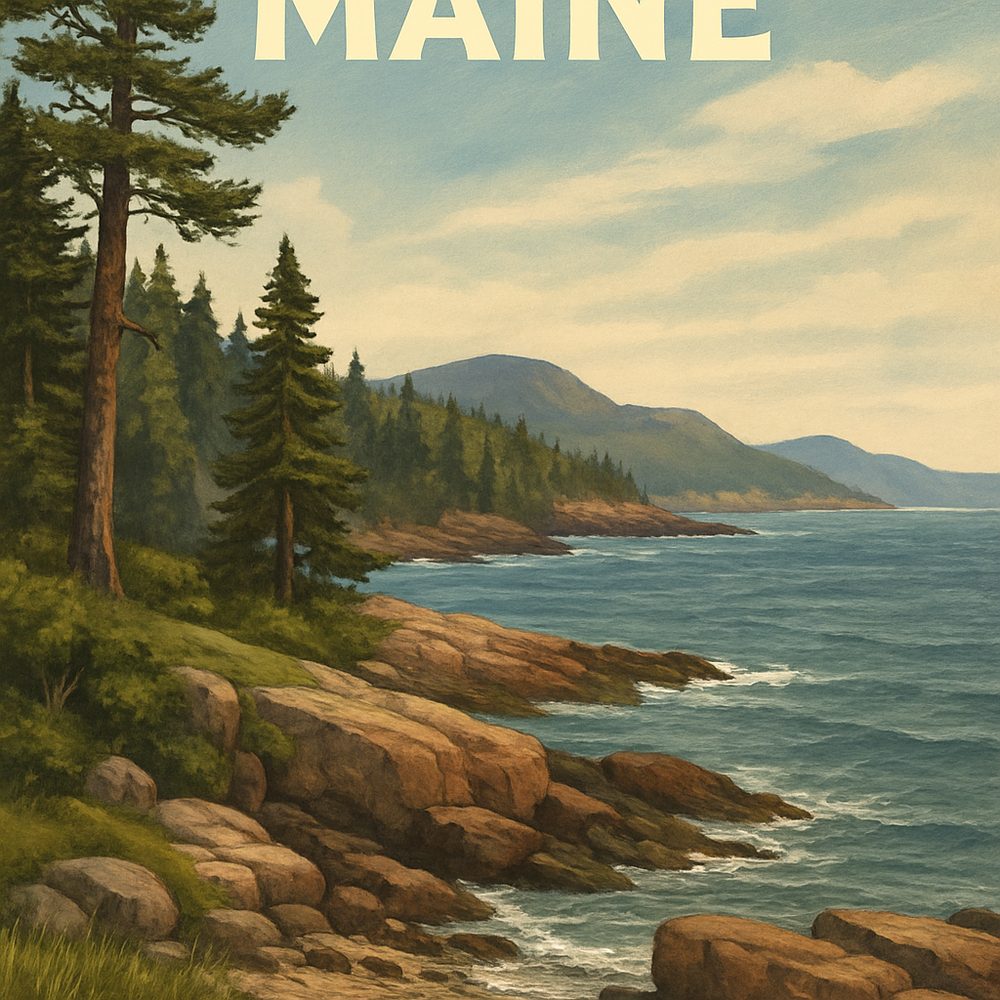Weird Laws Still on the Books in Maine

In Portland, Maine’s largest city, you can explore the Maine Historical Society’s Wadsworth-Longfellow House, a well-preserved 18th-century home about an hour’s drive northeast of Boston. This house belonged to the poet Henry Wadsworth Longfellow, and strolling through its rooms offers a glimpse into the early 1800s, when some of the state’s quirkier laws began to take shape. One longstanding ordinance from Portland’s early days reportedly prohibited the wearing of hats in theaters, a law rooted in respect but still amusing today. Visiting the Wadsworth-Longfellow House, with its original period furnishings and intimate setting, invites reflection on how social customs once translated into enforceable rules—many of which have oddly lingered in Maine’s legal archives.
A short drive north of Portland, the quaint town of Rockport sits on Penobscot Bay and harbors its own share of curious legal relics. At the Rockport Opera House, a historic performance venue known for its beautifully restored 1890s architecture and vibrant community arts scene, you can uncover how local laws affected behavior in public spaces. For example, one obscure statute once made it illegal to whistle underwater in certain parts of Maine—a law that seems purposefully baffling but likely had practical origins related to fishing or boating communities nearby. Sitting in the Opera House’s cozy auditorium while a play or concert unfolds, you can imagine the spirited debates these peculiar rules might have sparked among townsfolk.
About two hours north of Portland lies the bold wilderness of Baxter State Park, near Millinocket. This vast park is home to Mount Katahdin, the highest peak in Maine and the northern terminus of the Appalachian Trail. The park also serves as a living reminder of the state’s rugged individualism, which shaped some unusual local regulations. Among these are laws governing hunting and fishing licenses that have outlived their original intent, including statutes stipulating how many moose one person can harvest in a lifetime—reflecting early efforts to conserve wildlife but sounding strange today. Hiking the Knife Edge Trail along Katahdin’s summit ridge, with its breathtaking views of lakes and forests, you can sense how such rules came from a deep respect for nature and the land’s bounty.
In the coastal town of Bar Harbor, just 45 minutes east of Bangor, Acadia National Park offers a stunning backdrop for exploring Maine’s relationship with its maritime heritage, which also influenced some odd laws. Bar Harbor’s historic downtown, with its charming shops and seafood eateries, sits near the park’s rocky shorelines where regulations once controlled everything from lobster trap markings to the permissible hours for clam digging. These rules, some of which remain on the books, ensure sustainable harvesting but can seem quirky to visitors. Walking the Ocean Path trail in Acadia, you encounter tide pools and granite cliffs, all under the watchful eye of centuries-old fishing traditions that shaped the community’s legal landscape.
Heading to the northeastern corner of the state, the remote town of Eastport stands as Maine’s easternmost city and a gateway to exploring quirky laws born from cross-border trade and seafaring customs. Eastport’s waterfront, with its working docks and maritime museums, tells stories of smuggling, customs enforcement, and local ordinances that once made it illegal to sell certain fish on Sundays. The city’s vibrant arts scene, housed in restored warehouses and galleries, adds a modern twist to these historical echoes. Exploring the Eastport Arts Center during a summer festival, surrounded by ocean views and salty breezes, you get a sense of how laws reflected the town’s unique position between the U.S. and Canada.
In the small town of Bethel, about an hour northwest of Portland, the Bethel Historical Society Museum offers insights into rural life and the peculiar laws that governed it. One law, still technically valid, once banned the driving of automobiles on Sundays—an echo of religious observance and community values. Strolling through Bethel’s village green, especially in autumn when the foliage ignites the hillsides in fiery colors, you can sense the tension between tradition and progress that shaped such rules. Visiting the museum’s exhibits of local artifacts and photographs, you witness how these laws were born out of a desire to preserve quiet rural life amid technological change.
Finally, in the capital city of Augusta, the Maine State Museum provides a comprehensive view of the state’s legal history, including its many eccentric statutes. Located less than an hour northeast of Portland, the museum’s exhibits cover everything from early settlement regulations to contemporary law enforcement. One of the museum’s highlights is its display on Maine’s liquor laws, which historically included bans on selling alcohol on Sundays and restrictions peculiar to different counties. These laws offer a window into the state’s social fabric and how it balanced personal freedom with community standards. Exploring the museum on a clear winter afternoon offers a cozy retreat and a chance to understand how some strange laws have endured in Maine’s collective memory.